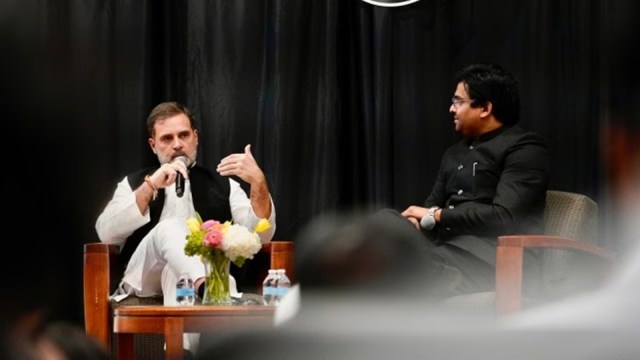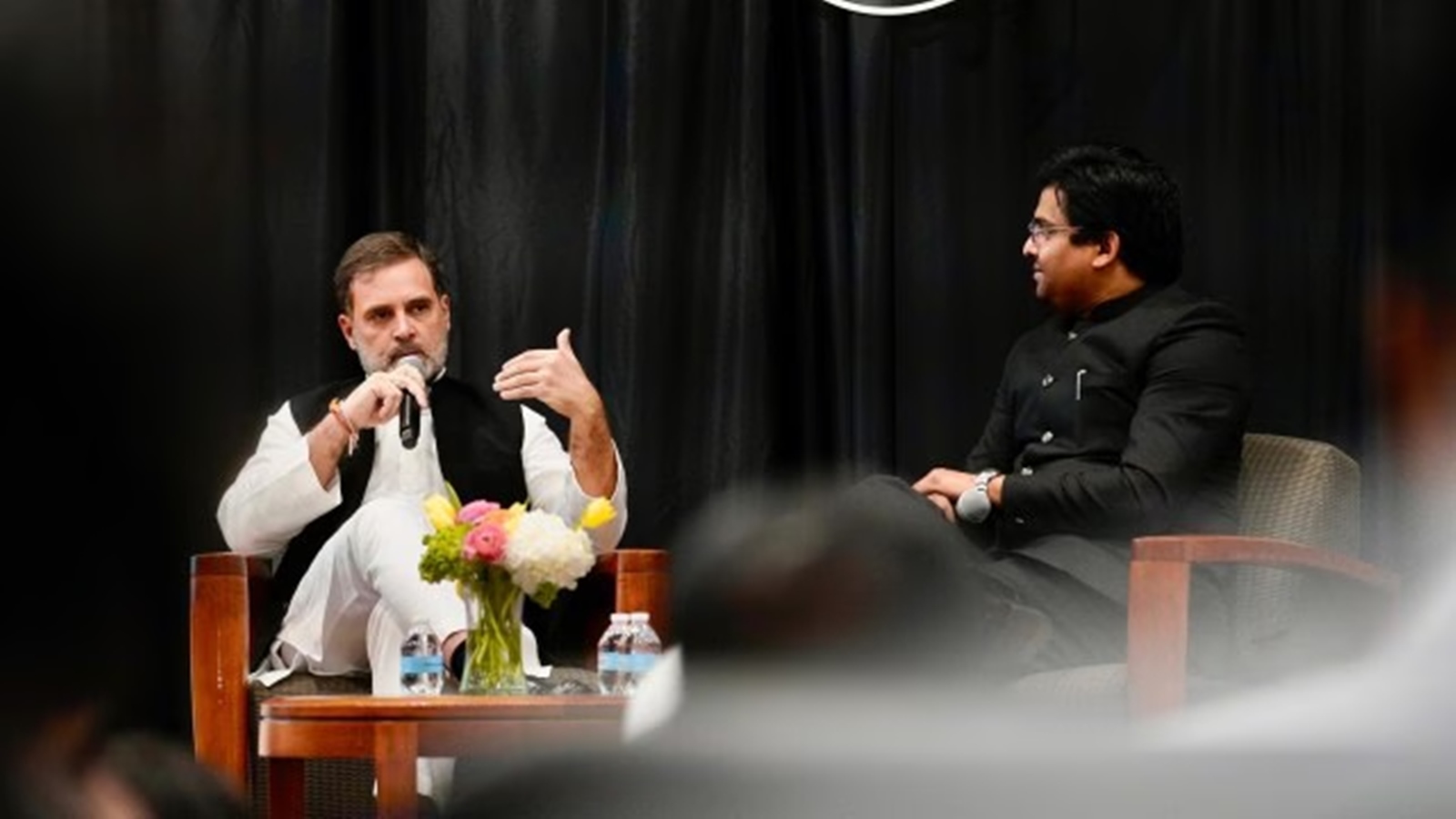
Rahul Gandhi’s brief visit to the US has evoked various responses in India, mainly on social media, and of course among commentators, and professional Rahul watchers. They have ranged from profound appreciation to strident criticism. That is not surprising. However, not much has been written about the kind of meetings and types of people from different fields he interacted with. Inadequate information and sometimes tendentious reporting led to some unwarranted comments. As chairman of the Indian Overseas Congress, I thought it best to give a straightforward and factual account of Rahul Gandhi’s US visit.
During his three-day visit, Gandhi addressed various types of public meetings — serious sessions with US lawmakers, senior and influential leaders of both Democratic and Republican parties, media persons, university students, public intellectuals and others.
Although the visit was undertaken in a personal capacity, it yielded substantial outcomes that furthered India’s foreign policy interests.
His public addresses in Dallas, Texas, and at Georgetown University and the National Press Club in Washington, DC, have already received extensive media coverage. However, it is his private engagements with senior and influential members of the US House of Representatives, officials from the House Foreign Affairs Committee (HFAC) and leading policy experts from think tanks that have brought a deeper, more nuanced understanding of India’s domestic challenges and the broader South Asian geopolitical landscape. This includes India’s relations with China, as well as Russia, especially in the context of the Russia-Ukraine war.
A pivotal aspect of the visit was a meeting with 10 members of the US House of Representatives who were drawn from the Foreign Affairs Committee, which has oversight of America’s foreign policy; the Congressional Progressive Caucus (CPC), which is one of the most influential and powerful caucuses in the US Congress, the India Caucus, which focuses on US-India relations and the Congressional Black Caucus.
Congressman Brad Sherman, a senior member of the HFAC and the CPC, hosted the meeting with Rahul Gandhi. Crucially, Sherman is a senior member of the House Subcommittee on Indo-Pacific, whose deliberations pertain to India and nearby nations.
While the BJP and the Indian news media have focused on the presence of Congresswoman Ilhan Omar, who participated in her capacity as the Deputy Chair of the CPC, all lawmakers in the meeting play crucial roles in furthering US-India ties.
Congresswoman Jan Schakowsky, a 26-year Congressional veteran, serves as the chief deputy whip of the Democratic Party in the House and is a Vice Chair of the Progressive Caucus. Congresswoman Barbara Lee is a CPC member and a veteran of the Congressional Black Caucus (CBC). In fact, Lee, Omar, Jonathan Jackson (son of the iconic civil rights leader Jesse Jackson), and Hank Johnson are all outstanding African American lawmakers and veteran members of the Black Caucus.
Their participation underscored the importance of Gandhi’s dialogue with diverse and influential groups within the US political landscape. Three Indian-American lawmakers — Ro Khanna, Raja Krishnamoorthi, and Shri Thaneda — who have consistently championed US-India relations also attended the meeting with Rahul Gandhi. They are all members of the CPC.
These leaders have regularly engaged with Prime Minister Narendra Modi during his visits to the US or their visits to India. Ro Khanna serves as the Chair of the India Caucus and led a delegation of US lawmakers to India to participate in last year’s Independence Day celebrations at Red Fort. His deep connection to India is further emphasised by his lineage — Khanna is the grandson of Amarnath Vidyalankar, a senior leader of the Indian National Congress, freedom fighter, three-time Lok Sabha member and Education Minister in Punjab.
Gandhi’s discussions with US lawmakers covered a broad spectrum of topics. He articulated an economic vision aimed at combating unemployment and ensuring a more equitable distribution of wealth. He underscored the need to empower marginalised communities, particularly the lower castes and economically disadvantaged groups. He highlighted the significance of conducting a caste census to recalibrate policies to more effectively target these communities.
A consistent theme in Rahul Gandhi’s discussions was the need to cherish, nourish, and preserve India’s Constitution. He stressed that pluralist democracy is a foundational ideal shared by both the American and Indian Constitutions. Gandhi argued that India and the US are natural partners in their quest to strengthen democracy both domestically and globally.
When questioned about South Asia and India’s relationship with Russia, particularly in the context of Ukraine, Gandhi expressed support for the Modi government’s stance, noting that it aligns with the foreign policy approaches of previous Congress-led governments. He also drew parallels between the economic challenges faced by India and those confronting the US and much of the Western world. He pointed out that while these nations have become significant consumers, they have not matched this with equivalent levels of production — an area where China has excelled. He said that countering China’s economic model, which offers prosperity at the expense of freedom, requires the democratic world to find ways to produce goods and services under democratic conditions.
In his remarks, Gandhi identified substantial opportunities for expanding India’s textile industry and modernising agriculture. He advocated for the infusion of
technology and capital into traditional production systems.
Gandhi concluded by praising the strategic partnership between India and the US. In his view, a strengthened partnership is essential not only for the prosperity of both nations but also to preserve democratic values in the face of global challenges.
The writer is chairman, Indian Overseas Congress
© The Indian Express Pvt Ltd
First uploaded on: 18-09-2024 at 08:00 IST



